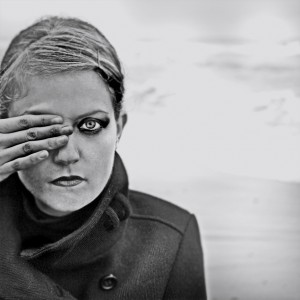You have no items in your cart. Want to get some nice things?
Go shopping
They always say, when you write, to write what you know. Get a little bit of yourself down on the page, show the reader your world and your character seen through the filter of your own eyes. Soon, you’ll find your own style, your niche. You’ll learn what genre you prefer, and which audience you prefer writing to.
But, have you ever tried to step away from that? Should you try to step away from that to expand your repertoire? Or should you just find what you’re good at and get better at it?
One time, when I was at university studying Creative writing, I tried taking myself out of my comfort zone. My writing style at the time was very focused on what the character saw as they walked through a scene. It was as if my narrative voice was sitting in the character’s head, just behind their eyes, and told the story almost primarily through what they saw rather than what they said, touched, or felt. It got to the point where I felt I was a little one-dimensional, and consequently, that my characters weren’t identifiable or believable.
So instead, I wrote a story where, halfway through, my main character was blinded.
Initially, I thought it would be a bit of a breeze. After all, apparently other senses completely heighten if sight is taken away, so I could just amp up my use of the other senses and still give the reader a good picture, perhaps a better one. In practice, though, it wasn’t simple at all. I found the process of simply imagining a character without the gift of sight clunky and awkward, like I was going through all the other senses clinically, like ploughing through a list. It ended up reading like a writing assignment, not a story.
My supervisor would talk up the potential and viability of the idea of writing out of my own experience, but my execution of it just didn’t impress him. He said I required a lot more research to make it believable. I looked at charities’ websites, and used my recollections about the blind man who had come to give a talk at school a couple of years ago. In the end, I was more inspired by the technology used to help blind people get around, and saved my story that way.
If I was to attempt that challenge now, five years later, I would do it in a radically different way. I would do a lot more research. You are bound to feel some uncertainty when you write about something you haven’t personally experienced, but research, at least, takes some of the uncertainty out of the process. My initial attempt at writing about blindness had ended up being a tokenistic exercise as I wasn’t mature enough to think about the implications of it, and so ultimately didn’t fulfil my goal to portray the state of being blind authentically.
There was the other time—the first time I tried to write a male character: a complete disaster. Again, that was at university, for one of my weekly writing tasks. This was amplified by the fact that I had been to a girls’ school and hadn’t encountered boys for seven years of my education, and so didn’t have a frame of reference for how boys interacted with girls or with the world. Since then, I have tried to write male characters many times, and I’ve only been happier with the ones I have written in the past year, as they are more realistic and nuanced. But these struggles aren’t particular to the aspiring writer. Even established writers will face these difficulties—some write men better than women, some children better than adults. It’s like trying to portray someone of a different race or who lives in a different historical era. It’s like writing about anyone you are not and whom you personally do not know.
There is a fine line to tread between normalising a character and exoticising a character who is different from ourselves. We shouldn’t be afraid of writing about things that are not part of our personal experience—in fact, it is important not to be afraid to attempt things like that—because otherwise, literature would become a whitewashed monocultural monolith. But in doing so, we should treat writing about things we don’t know with the challenge and respect it deserves. If there are aspects of a culture we genuinely don’t know about, we should research and ask questions and get it right, even though we also have to be humble enough to acknowledge that we can’t ultimately really know what it means to be blind, or of a different race, or of a minority in whichever other way. If we acknowledge that, and acknowledge that writing is a learning experience, and we are open to people pointing out the errors in our depictions, then it can be an experience for everyone, writer and reader.

About N/A N/A
Emma joined Litro in October 2012 after a string of internships in publishing, PR, and marketing. She looks after the Tumblr and Pinterest accounts, and comes up with cunning plans to gain more subscribers. She also quite happily rambles on any subject that is given to her to turn into a feature. When not writing for Litro, Emma writes children's books, having completed an MA at Winchester University. She is also a keen runner, and is running the London Marathon next year.




